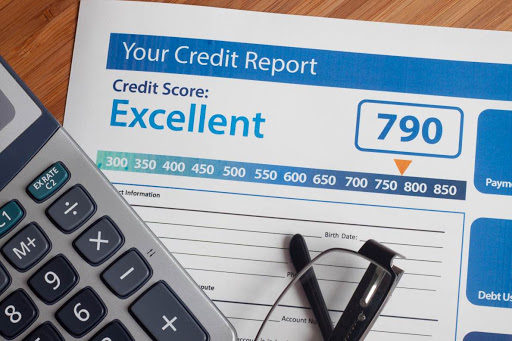
How Does My Personal Credit Score Impact My Business Loan Application?
It probably doesn’t take long for any business owner who applies for a business loan to discover that their personal credit impacts their ability to qualify, but whenever I talk to business owners it seems that there are some misconceptions and questions many small business owners have regarding what the impact is, what is included in their profile, and what they can do to improve the odds of loan approval and the options available when they’re looking for a small business loan.
Small business owners in the United States really have two profiles, their personal credit profile and their business profile. Both profiles play a role in business loan approval, but today we’re going to talk about personal credit score. In a companion piece to this, we’ll talk about the misconceptions many small business owners regarding their business credit profile. Although your business credit profile and your personal credit score are very different, and even express different information about you and your business, they both impact your ability to qualify for loan and the options available to your business.
Today, let’s dive into your personal credit score.
For most small business owners, their personal credit score will likely always be a part of the equation, so it’s important to understand what it’s telling your creditors, and how directly impact your ability to qualify for a loan.
As a general rule, most lenders want to know the answers to three very important questions:
- Can you repay a loan?
- Will you repay a loan?
- Will you make each and every payment even if something unexpected happens?
They might not ask the questions in this way, but your personal credit score gives them insight into what you’ve done in the past, so they can make assumptions about what you are likely to do in the future.
With that in mind, it might be helpful to understand how your personal credit score is calculated:
- 35% of your score is a reflection of your payment history. Do you have any late payments, bankruptcy, judgments, settlements, charge offs, repossessions, or liens? This information will impact your score and gives them insight into how you’ve dealt with credit in the past.
- 30% of your score is calculated by the debt you owe. In other words, your debt to credit limit ratio, the number of accounts that carry a balance, the amount owed across different types of accounts, and the amount paid down on installment loans. If your personal credit is always at or close to your limit of available credit, or your credit usage is very high, it can negatively impact your personal credit score.
- 15% of your score is impacted by the length of your credit history. The longer the better. The two pieces of information that impact this part of your credit history the most are the average age of the accounts on your credit report and the age of the oldest account. Because creditors are trying to predict future credit worthiness based upon past performance, the more information they have, or the longer your history, the better they’re able to determine your overall creditworthiness.
- 10% of your score is determined by the type of credit you use. If you can demonstrate that you are able to manage different types of credit—revolving, installment, mortgage, etc., it will positively impact your personal score.
- 10% of your score reflects new credit enquiries. Every time you apply for credit and the creditor does a “hard” enquiry into your credit report, it has the potential to reduce your score. Shopping for a new mortgage or auto loan will not typically hurt your score beyond the first enquiry because the bureaus realize you are probably shopping for the best rate, but frequently applying for credit cards, revolving charge accounts, or department store credit cards could reduce your score. According to Experian, these enquiries will likely be on hour report for a couple of years, but have no impact on your score after the first year.
How does this impact your ability to get a loan or the options you have available?
Although each of the major personal credit bureaus (Experian, Equifax, and TransUnion are the three biggest) vary slightly in how they score your credit profile, the values are fairly universal. Nevertheless, don’t be surprised to see slight differences in how they score you personal credit. Different lenders will weight your personal credit score when considering your business for a small business loan differently, but the following rules of thumb typically apply:
- A personal credit score below 680 will make a loan with a traditional lender like a bank or credit union problematic. In fact, most banks want to see a score above 700.
- The SBA is often willing to lower their acceptable threshold to 650 provided other business metrics are in place. Nevertheless, a personal credit score below 650 will make it very difficult to qualify for an SBA loan, likely eliminating that option.
- Many online small business lenders will work with a borrower who has a score lower than 650, provided they can demonstrate their ability to make payments and can demonstrate an otherwise healthy business. If this applies to your business, you should be aware that these loans could come with a higher interest rate and specific terms to compensate for the increased risk associated with a lower personal credit score. An advantage of this type of financing is that it typically comes with quick approvals and access to the capital.
Depending upon the particular business need you’re trying to fill, your personal credit score, and the amount of capital you need to meet your use case, any one of the above options could be a good fit. For example, many businesses with an excellent credit profile will still choose an online loan with a higher interest rate because they can have access to capital in a matter of a day or two vs. several weeks or the shorter term will reduce the total dollar cost (or interest amount paid) of the loan.
While I agree that your personal credit score is really a reflection of how you manage your personal credit responsibilities rather than your business credit obligations, small business lenders consider it an important part of how they evaluate your business creditworthiness—so it’s very important to take steps to make sure your personal credit score is as strong as possible.
Click HERE if you’d like to learn more about the relationship between personal and business credit and what you can start doing today to improve your credit profile. Next week we’ll dive into your business credit profile and discuss how it can impact your ability to qualify for a small business loan, the information the business credit bureaus collect about your business, and the steps you need to take to make your business credit profile the best reflection of your business’ creditworthiness.
Resource: SCORE







